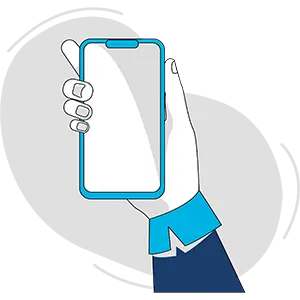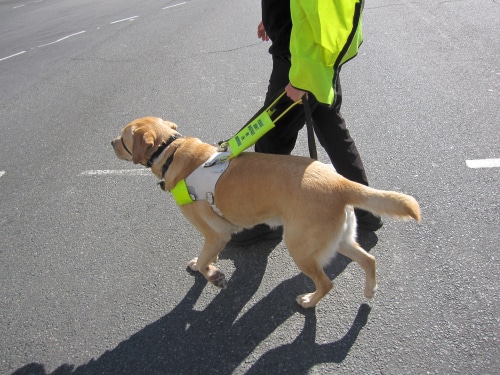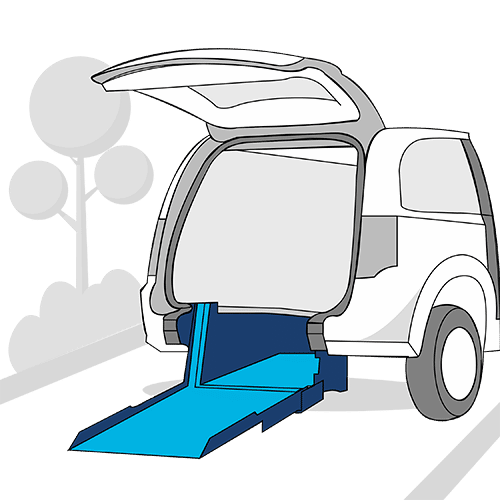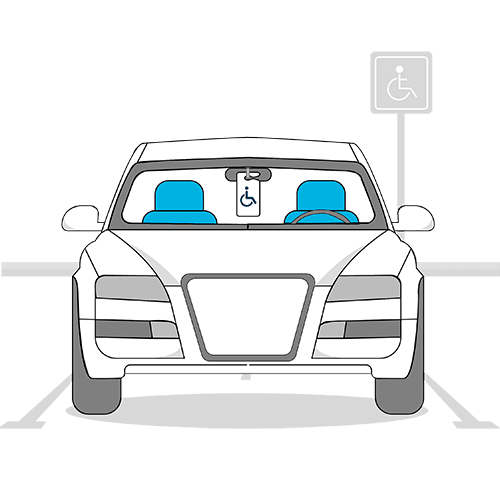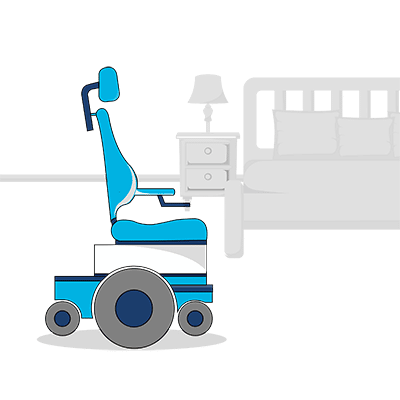COVID-19 and assistance dogs may not be the top headline in the news right now, but for many of us it’s an important topic. If you depend on an assistance dog, guide dog and/or therapy dog you may have concerns for your pup.
Can your dog get COVID-19? Will they feel sick if they do? Do they need to be vaccinated? Will they spread it and how can we protect them?
While COVID-19 vaccines for humans may be the priority headline in the news, for many of us the wellbeing of our dog is just as important.
COVID-19 and assistance dogs
‘Can my dog get coronavirus?’ may be a key concern for you, and that’s understandable. If they do, they could become seriously ill and may even be unable to service you. If that happened, you could be left stranded.
The simple answer is yes – dogs can get coronavirus. This article about COVID-19 and pets explains that, according to the World Health Organisation, dogs can get coronavirus from humans. So can cats.
While we understand your assistance dog isn’t necessarily a pet in the true sense, the same truth applies. It could get coronavirus after close contact with an infected person.
But happily, as far as we know it doesn’t make them sick. At the time of writing, no dogs with coronavirus have shown any symptoms of feeling sick. Interestingly though, cats have had mild symptoms.
Can dogs spread coronavirus to humans?
‘Can I get coronavirus from my dog?’ is perhaps an even more important question. The good news is that while dogs can get coronavirus from humans, the research so far shows that they don’t spread it.
So, thankfully, no COVID-19 and assistance dogs concerns at this point in time.
Having said that, even though dogs aren’t thought to spread the virus to other animals or people, they should still be socially distanced if they test positive. Further, the virus is still relatively new and can mutate. So take a ‘better safe than sorry’ approach and practice COVID-safe guidelines.
If you’re concerned your dog may have coronavirus speak to your vet about getting them tested.
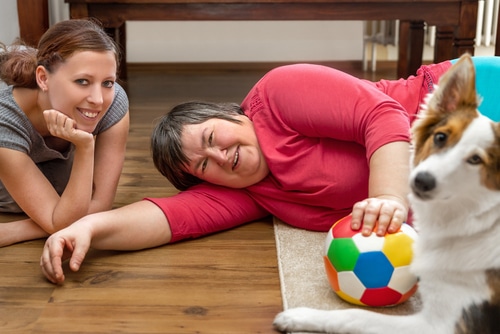
Protecting your assistance dog from COVID-19
Our service dogs are working dogs and they go everywhere we do. They’re usually regularly exposed to other people, and often to other assistance dogs and pets. They work with and assist us in our daily lives.
So even though dogs may not get sick when they have the virus, or pass it on to us, we should protect them where we can.
The Centers for Disease Control and Prevention taking the following measures where possible, to reduce the risk of coronavirus for your dog:
- Maintain a 2m distance between your dog and other people/pets
- If they’re sick, keep them home and call their vet
- Avoid areas at higher risk of being populated with people who have COVID-19
- Don’t go to places where you’ll interact with COVID-19 positive people
- Avoid contact between sick people and your assistance dog
- If you and/or your assistance dog are around someone who’s sick (which you really should avoid), make sure they and you wear a mask. Here’s how to wear face masks wisely
- Any accessories your dog uses such as a collar, harness, leash or vest should be cleaned and disinfected on a regular basis.
It’s important that you only clean your dog with the appropriate vet-recommended animal products. Never use hand sanitiser, chemical disinfectants, or alcohol on your dog. These will damage their skin.
Also never put a mask on your dog. It’s unsafe for dogs to wear masks. For example, dogs have been known to swallow face masks which can cause an intestinal blockage.
COVID-19 vaccination for dogs – is this necessary?
The main concern of spread with COVID-19 is human to human contact. Because our dogs can’t transmit the virus, the general scientific opinion is that dogs won’t need to be vaccinated.
That’s good news for anyone with an assistance dog.
Even though our dogs don’t transmit coronavirus there are still some animals that do. Mink have been known to get coronavirus from humans and then also spread the virus back to humans. Further, there’s always a chance of the virus mutating when it spreads to different species.
Because of this, scientists are still going to develop a COVID-19 vaccine for animals. The vaccine could protect assistance animals, pets, zoo animals, farm animals and even animals in the wild from the coronavirus.
If you have an assistance dog you know it’s gone through an intensive training program to prepare them with the skills they need. COVID-19 has resulted in training changes and delays, which could result in a longer waiting time to get one.
Assistance dogs in Australia
Working dogs aren’t trained for social distancing. As a result, they’re having to navigate a new reality since the arrival of COVID-19.
A common problem is when members of the public go up to the dog to talk to them or even pet them while they’re working. When you have an assistance dog, people don’t always understand how crucial that dog is to your accessibility.
As you know, petting an assistance dog is irresponsible. It distracts the dog, making their job harder. Perhaps social distancing will help to prevent this from happening as often. Besides the danger of spreading COVID-19 find out why you shouldn’t pet assistance dogs.
Did you know that Blue Badge Insurance donates a portion of every premium to the Assistance Dogs Australia Physical Disability Program partnership. It costs $40,000 to train each assistance dog, and Assistance Dogs Australia relies entirely on community support so it can give these dogs to the people who need them, free of charge.

COVID-19 cases and assistance dogs
At the time of writing, America had 41 recorded cases of coronavirus in dogs. Happily, no dogs in Australia have it. If you’ve been following the coronavirus headlines and had any concerns for your assistance dog, we hope this article has helped make matters clearer.
Protecting your assets
In addition to good hygiene and safe distances in crowded places, there’s now another way to protect your pets and assistance dogs. We’re offering 25% discounted assistance dogs insurance, and if you’re a disability parking permit holder, up to 15% discounted pet insurance.
Your insurance will help cover the costs of non-routine vet visits, surgery, hospitalisation and many other medical costs for your pet or assistance dog. Find out more and start your plan today – just click below, it’s easy.

